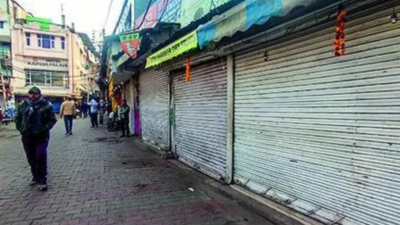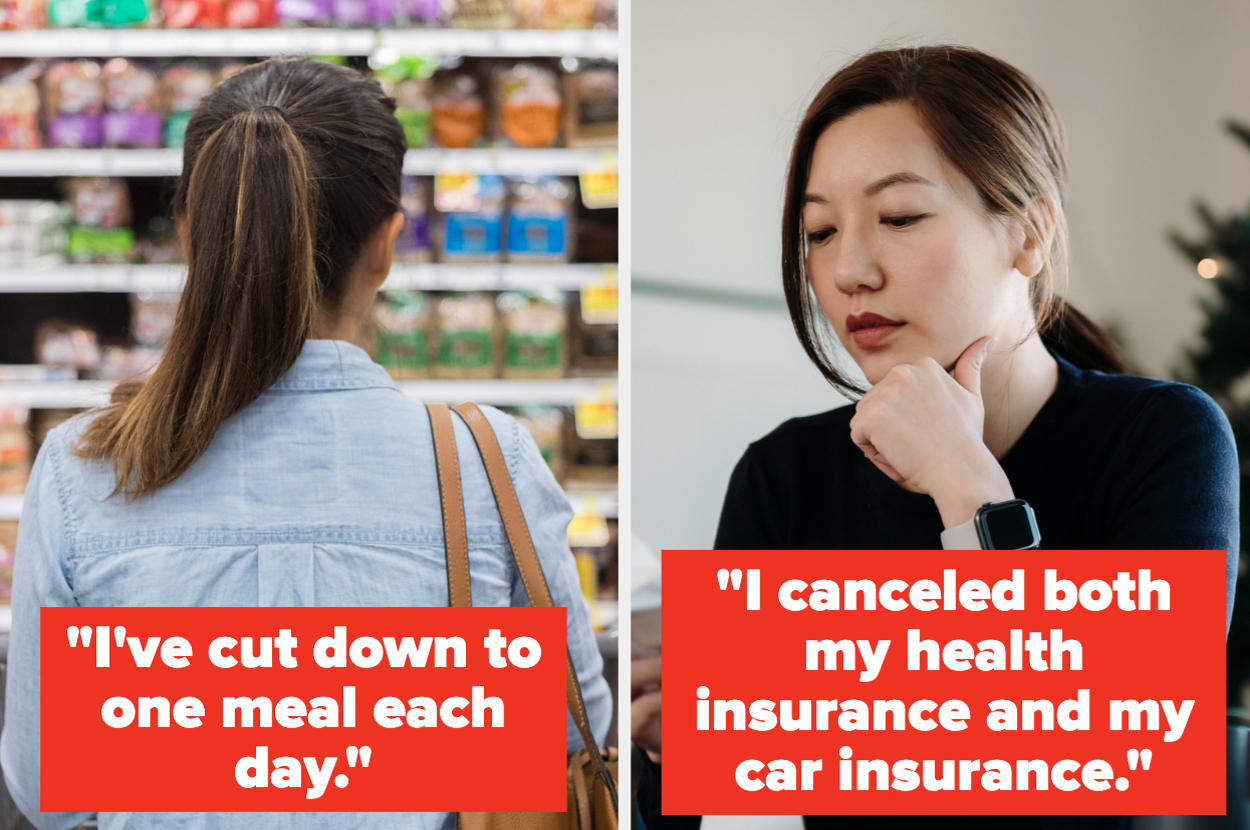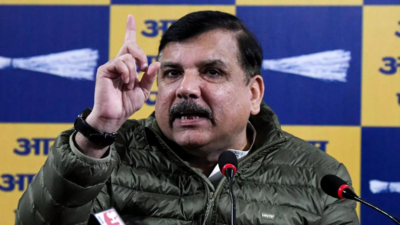/cdn.vox-cdn.com/uploads/chorus_image/image/73778758/La_Monarca.0.png)
For generations of Mexican Angelenos born and raised in neighborhoods like Boyle Heights, East Los Angeles, and Pacoima, local panaderías serve as cherished community gathering places. Longtime establishments, including East LA’s El Gallo Bakery which opened in 1949, and the 72-year-old La Mascota in Boyle Heights, have been baking multi-tiered quinceañera cakes, pan dulces, and fresh bolillos for generations. Despite a diverse population of Mexicans from different states living in Los Angeles, there’s universal comfort language found in piling pan dulce high atop aluminum trays using metal tongs and eating the baked goods for breakfast dunked in coffee.
The ritual on this side of the border often transports immigrants back to their pueblo. While every Los Angeles neighborhood has its standby bakeries, La Monarca has emerged as the Southland’s dominant chain, with 12 locations and a massive production facility in Gardena that feeds the growing empire founded by Ricardo Cervantes and Alfredo Livas in 2006. Walking through La Monarca’s 12,000-square-foot factory, which opened in 2017 to maintain quality and consistency across all stores, the scent of hot baked bread and caramelized sugar fills the air.

A small crew of employees, many of them working in pairs, assemble savory torta fillings; others pack freshly baked ear-shaped orejitas (palmiers) into cellophane bags. The workers, wearing gloves, face masks, and chef’s coats underneath plastic aprons, chat quietly under the steady hum of conveyors, ovens, and power mixers. Eater was invited to tour La Monarca’s production facility — the first media outlet to be granted permission to do so — to get a sense of the inner workings and enormity of the homegrown brand.
“We operate from 3 a.m. to 9 p.
m. with different teams to maximize the space,” says Cervantes. The tour begins with an eyeful of different doughs.
Panaderías in the U.S. typically have a limited number of doughs to make baked goods, while artisan bakeries in Mexico and places like Compton’s Pan Estilo Copala use half a dozen different varieties.
La Monarca is dedicated to producing as many unique doughs as needed to ensure distinctive pastries, even though it increases production costs compared to competing panaderías. In Mexico, the panadería is woven into the fabric of daily life, playing an especially integral role during holidays: panaderías prepare pan de muerto for Día de Muertos, pan dulce for Christmas, and colorful roscas de reyes for Día de Reyes in early January. Mexicans visit panaderías day-to-day for bolillos — the sturdy bread that forms the foundation for tortas and molletes — and sweet treats like conchas and other baked goods ( chilindrinas , cuernos , besos , bigotes , and mantecadas ).
Inside the factory, a trio of commercial mixers knead up to a dozen different kinds of dough. Nearly every batter employs flour, sugar, yeast, and butter. “The dough is proofed here, then delivered to each branch to be freshly baked every day,” says Cervantes.
With less than half of the factory floor devoted to baking, it’s almost hard to believe that the facility can meet the demands of a dozen busy retail branches. Starting at around 6 a.m.
each day, trucks are loaded up with frozen, unbaked pastries to replenish the stock to be baked the following day at La Monarca bakeries across the city. On a stainless steel work table, two workers spread cold butter over rolled-out dough for croissants before loading them onto baking sheets that are slid onto specialized racks. Nearby, three women pack freshly baked orejitas inside small orange, yellow, and beige bags labeled with the logo for La Monarca’s nonprofit partner, Ecolife Conservation , which is dedicated to the conservation of monarch butterflies that arrive in the Mexican state of Michoacán each winter.
Later the same day, a different team prepares Danishes filled with sweet guava paste or dulce de leche imported from Mexico at the same workstation. An industrial-sized sheeter laminates the dough numerous times to achieve the pastries’ many flaky, feathery layers. Near the entrance, workers spoon portions of Mexican stews, including chicken mole and beef salsa verde, into flour tortillas for burritos.
They also assemble breakfast burritos, La Monarca’s latest menu addition stuffed with ingredients like eggs, soy chorizo, and bacon. One of the efficiencies outsourced to the factory is the production of cooked fillings for burritos, tacos, and tortas to eliminate the certification process needed to handle raw foods in individual stores. The most hypnotic corner of the factory is where Mexican wedding cookies are assembled.
The scent of butter hangs in the air while an automated cookie cutter forms the raw dough into the proper shape, plopping it onto baking sheets that are then manually loaded into double-rack ovens. In the oven, thousands of wedding cookies rotate and bake slowly, their crumbly butter pecan batters turning a ripe golden hue. Around the corner from the ovens, workers Maria Rodríguez and Zonia Torres toss handfuls of the cookies in a pile of powdered sugar like children forming snowballs in winter.
La Monarca’s co-founders met 23 years ago while earning their MBAs at Stanford University. The two grew up in Monterrey, Mexico, but never crossed paths until landing in Palo Alto and bonding over their shared regiomontano heritage . After graduating in 2003, Cervantes and Livas partnered to reenvision Los Angeles’s pan dulce market after observing over time that the city’s panaderías largely lacked warm, inviting spaces for sitting to enjoy the various pastries on offer.
“México has a variety of bakeries, from high to low, but not here [in LA], so we wanted to introduce this service model,” says Cervantes. “To bring a different taste of Mexico.” Cervantes jokes that the pair left graduate school with master’s degrees in baking administration and a business plan.
Since its debut in 2006, La Monarca bakeries have occupied a niche space between traditional Mexican panaderías and more chef-driven bakeries like Gusto in Long Beach — with a dash of indie coffee shop. Offering an all-day menu of Mexican breakfast and lunch dishes, coffee drinks, and plenty of pastries, La Monarca’s business model is similar to chains like La Brea Bakery and Tartine. “If La Monarca was to be legitimate, we had to first win over the Mexican clientele.
” While business thrives today, some locals didn’t quite latch onto La Monarca’s approach when its first store opened in Huntington Park. (“At first, we gave away our bread to the few customers complaining that the price was too high,” says Cervantes.) La Monarca intentionally opened its first panaderías in established Mexican barrios like Huntington Park, Boyle Heights, East LA, and Lincoln Heights to gain more recognition and trust within the community.
“If La Monarca was to be legitimate, we had to first win over the Mexican clientele,” he says. The bakery differentiated itself from other mom-and-pop shops by creating an inviting environment for locals to buy drinks like iced cafe de olla and horchata lattes, snacks like molletes, and quality flour tortillas without veering far from home — and dedicated space within each location to enjoy them. Within two months, business picked up at the first store; La Monarca now receives over 20,000 customers weekly at its dozen stores.
Since the beginning, the partners have adapted to their customers’ needs, using formal and informal avenues to determine new menu additions or tweaks to existing items and to improve customer service. When Cervantes and Livas noticed customers carrying specialty coffee drinks into their stores, they introduced a line of espresso drinks soon after in 2007. Some of the bakery’s signature beverages include tres leches and horchata lattes and iced cafe de olla.
More recently, when the chain added breakfast burritos to its menu, some regulars found the cheese inside too mild; La Monarca quickly switched to chef Eric Greenspan’s line of New School American cheese to improve the final product. Mexican wedding cookies. Over nearly two decades, La Monarca has won over Mexican Angelenos with its quality pan dulces and ability to be both a third place and remote work hub, especially among younger Latinos.
The bakery has also expanded stores beyond those in Mexican barrios to neighborhoods like Santa Monica and South Pasadena; English-language instructions on assembling a pan dulce spread like a Mexican might are posted near the pastry case for new diners. In 2022, La Monarca began distributing its Mexican wedding cookies, Mexican hot chocolate mix, and cafe de olla to Costco stores across nine states, expanding sales and allowing the brand to reach a wider audience through the wholesale giant. “We still plan to open more locations, but are focusing on Costco and distributing to other bakeries,” says Cervantes.
Whether stopping in for a box of pan dulce to feed a family gathering, an horchata cake for a party, or a few burritos for lunch, La Monarca has become a community mainstay across Los Angeles. Some customers have come to refer to La Monarca as “Mexican Starbucks” as a fond shorthand to explain it to those less familiar, but Cervantes disagrees with the comparison. “We are first and foremost a panadería,” he says.
Related Sign up for our newsletter. Check your inbox for a welcome email. Oops.
Something went wrong. Please enter a valid email and try again..















